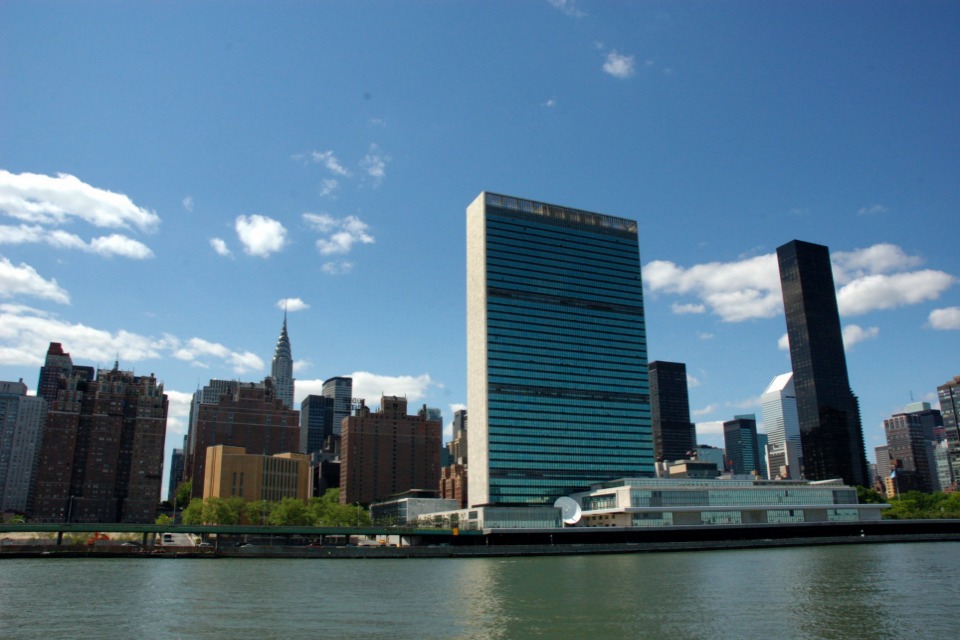"The UK greatly appreciates the work of the ICTY and ICTR on tackling sexual and gender based violence crimes"
UK Statement to the Security Council meeting on ICTY and ICTR

Thank you Mr President.
At the outset I would like to thank President Meron, President Joensen, as well as Prosecutor Brammertz and Prosecutor Jallow for the reports they have presented to the Council here today. I would also like to reiterate the United Kingdom’s continued support for the very important work being carried out by both Tribunals as independent judicial bodies.
As regards the ICTY, we note that Serbia, Croatia and Bosnia and Herzegovina all continue to co-operate with the Tribunal. Regional co-operation remains essential for the ICTY to be able to complete its mandate and deliver justice for the many victims of the conflicts in the former Yugoslavia.
We welcome the news that judgments in the trials of Karadzic, Mladic and Hadzic are all expected on the same dates as previously anticipated. We commend the Tribunal on its work to minimise delays.
Mr President,
We note that the Prosecutor’s main concerns are, once again, the slow progress of war crimes prosecutions in national institutions within the former Yugoslavia - particularly in Bosnia and Herzegovina. The Prosecutor’s assessment that this poses a risk to Bosnia’s compliance with the deadline specified by the National War Crimes Strategy is very valid. The timely completion of these cases should remain a top priority.
The Bosnian state, entity and cantonal Prosecutor’s Offices have received additional staff to help expedite these proceedings. The Prosecutor’s Office is supported by the European Union which is contributing 15.5 million Euros, through the Instrument for Pre-Accession, to build capacity and to help reduce the processing backlog. It is hoped that the backlog will be reduced by 50% over the course of 5 years.
Mr President,
Moving on to the ICTR, 2014 marks the 20th anniversary of the Rwandan genocide - a tragedy of global significance which has influenced the international community’s approach to peacekeeping, mass atrocity prevention and international justice. Between April and July 1994 in 100 short days approximately one million people were killed in the most horrific manner. Rwanda’s transformation since those dark days has been truly astonishing.
We would like to take this opportunity to congratulate the ICTR ahead of its upcoming 20th anniversary in November and to thank everyone involved with the Tribunal for their work to ensure that those most responsible for the Rwandan genocide are held accountable. The work of the ICTR has been fundamental in helping to deliver justice.
The apprehension of the nine fugitives remains a serious cause for concern. The ICTR’s work cannot be completed until these individuals have been brought to justice. We continue to encourage all states to provide the ICTR with their full co-operation to ensure that all of these fugitives are apprehended and face justice.
The problem of relocating acquitted individuals from Arusha also remains unresolved. We thank and commend the ICTR for its continued efforts to try and resolve this problem and, once again, we encourage all parties to work together to try and find an acceptable solution as quickly as possible.
Mr President,
The United Kingdom greatly appreciates, and supports, the work of the ICTY and ICTR on tackling sexual and gender based violence crimes. The Foreign Secretary of the United Kingdom has made ending sexual violence in conflict a priority and will be hosting the Global Summit to End Sexual Violence in London from the 10th to the 13th of June. It will be the biggest summit ever held on this issue and will seek agreement to practical steps from states to shatter the culture of impunity around crimes of sexual violence once and for all.
Thank you Mr President.